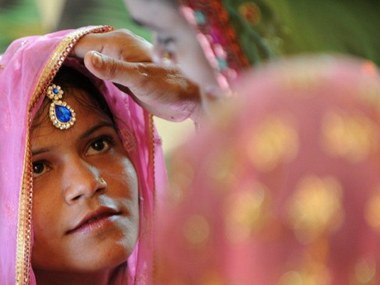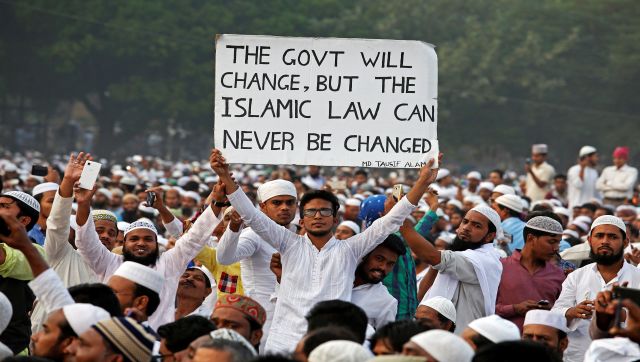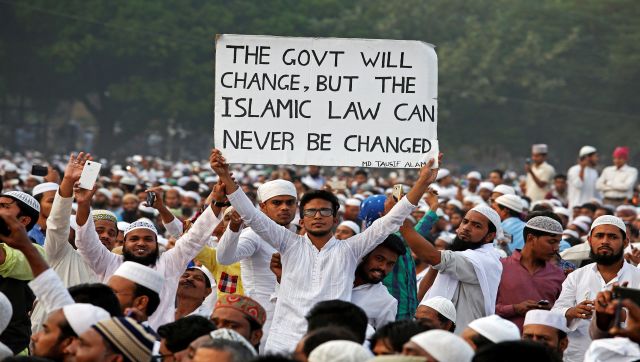The recent incident in Tamil Nadu where a district collector prevented the marriage of a minor Muslim girl that led to communal protests, brings to fore, yet again, the conflict between Indian law and personal laws.
Reportedly, the collector prevented the marriage of a 17 year old girl in Perambalur district in central Tamil Nadu to a 36 year old man since she was not of marriageable age. The groom was sent to judicial custody while the girl was sent to a remand home.
Local community leaders went up in arms saying that the action was a violation of their personal law. Apparently further agitation is brewing with the support of the Indian Union Muslim League (IUML).
The Collector took action under the Prohibition of Child Marriage Act 2006 (PCMA) which prohibits marriage of a girl under 18 or a boy under 21 years of age. However, the Act provides for certain flexibilities that can in effect neutralise a major part of the effectiveness of the law.
Although the protestors are arguing on the basis of their personal law, or more precisely the Sharia, they need not have taken a communal angle. In legal terms, the marriage is not void unless the girl has a complaint.
As per Section 3 of the Child Marriage Act, the marriage is “voidable at the option of the contracting party who was a child at the time of the marriage,” which means that in this case, only the girl has the right to ask for an annulment of the marriage.
In fact, the same section also prescribes that the petitioner should be the same person who was a child at the time of marriage.
Under section 13, courts also have the power to issue injunction prohibiting child marriages. States sub section (1):
Notwithstanding anything to the contrary contained in this Act, if, on an application of the Child Marriage Prohibition Officer or on receipt of information a Metropolitan Magistrate is satisfied that a child marriage in contravention of this Act has been arranged or about to be solemnised, such Magistrate shall issue an injunction against any person including a member of an organisation or an association of persons prohibiting such marriage.
The sub-section further states:
(2) A complaint under sub-section (1) may be made by any person having personal knowledge or reason to believe, and a non-governmental organisation having reasonable information, relating to the likelihood of taking place of solemnisation of a child marriage or child marriages.
In this case, it is not clear if the collector took the decision on his own or on complaint from the girl. If the girl has filed a petition, then both the groom and the parents are punishable by imprisonment up to a period of two years and fine up to Rs one lakh. Even those who colluded or participated in the process are punishable.
The collector is steadfast on the issue. In view of the practice of child marriage in the region, he has so far foiled more than 100 such incidents and has also advised schools to keep a tab on girl children dropping out or seeking transfer certificates.
Interestingly, as the provisions of the Child Marriage Act shows, the argument of the Islamic activists to communalise the issue is misplaced. There is no need to argue the case as a violation of Muslim personal law because the same is applicable to Hindu marriages as well. It is an issue of the age of the girl or the boy.
“There is no need for any communal colour or targeting any particular community here,” says Geeta Ramaseshan, senior lawyer at the Madras High Court. “A lot of Hindu marriages in India also involve minors,” she says.
Child marriage, or marriage of girls under 18, is rampant in India. Communities, irrespective of their religions, even argue that if one goes strictly by the law, a large number of marriages in the country are fit to be annulled, which will have dramatic consequences on the lives of women, ranging from inheritance of property to maintenance of families and children.
The lacunae in the law, the justification of traditional practices in the name of caste and religion, the inability of the victims to protest, as well as lack of awareness keep this shameful practice going. Efforts of lonely rangers such as Dr. Darez Ahmed, the district collector of Perambalur, are the exceptions that need to be multiplied.


)




)
)
)
)
)
)
)
)